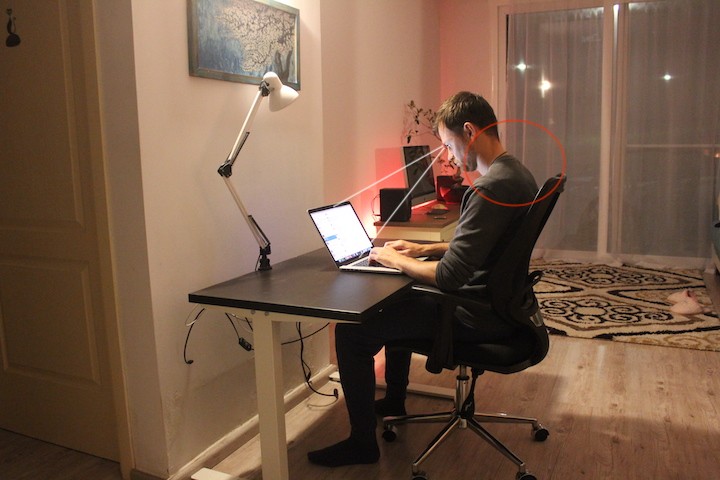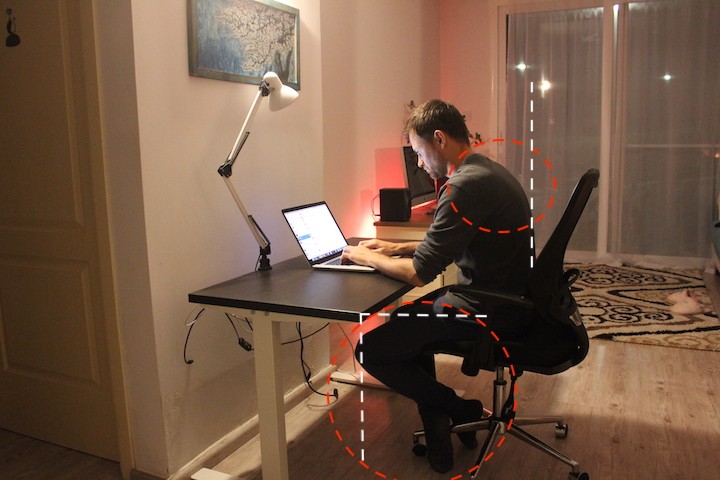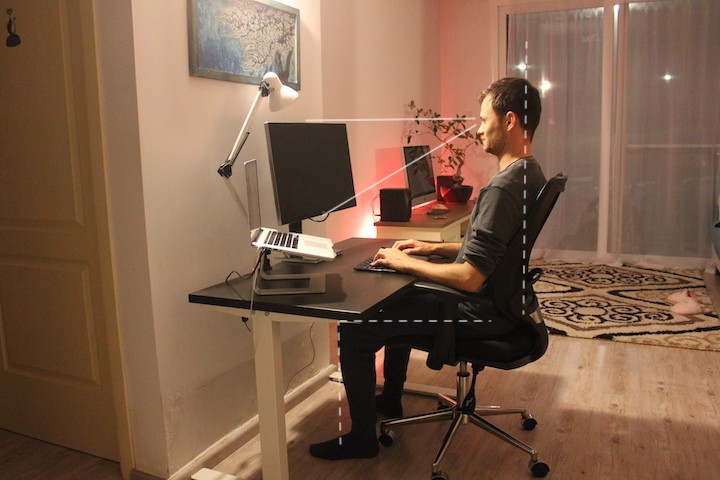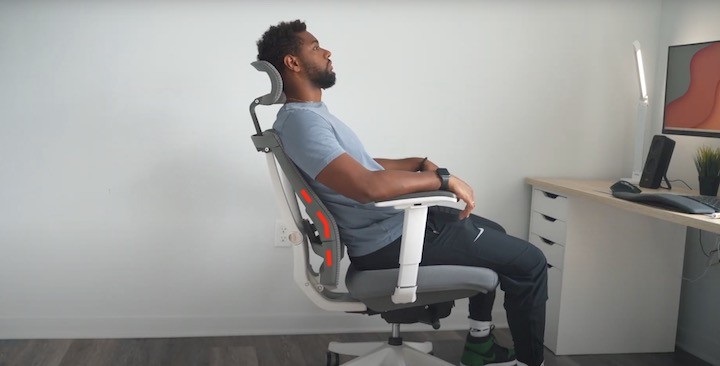Neck & Shoulder pain has become a common issue in this modern era of technology. Do you know why? The enhancement of technology is the primary reason for it. We now spend a lot of time in front of our computer. A long time sitting at the computer can cause severe pain in the neck and shoulder part of our body. So the neck and shoulder pain from sitting at the computer now becomes a hot topic worldwide. Thus, we are here to identify the cause of neck and shoulder pain and discuss how to reduce this pain.
6 Reasons of Neck & Shoulder Pain From Sitting At the Computer
Page Contents
You work in an office and sometimes have pain in your neck or your shoulder? You are not alone. Statistics show that the workplace and computer staff are among the most vulnerable states to these chronic diseases, leading to financial losses and even disabilities. Neck pain grades fourth among the world's most significant triggers.
Here are the 6 most obvious explanations for neck and shoulder pain :
Constantly looking down on the computer
When using a laptop, what most people do is just put it on their desk. This could be all right for a moment, but anytime longer, and you will start feeling your neck and shoulders.
Studies have also shown that even 15 degrees of tilting the neck to look at the laptop screen double the strength exerted on our neck to support the head. When placing your laptop on your lap, the power relative to a straight neck can be three times as high.
Poor positioning of the monitor
Like a laptop screen that's wrongly located, the wrong display will become a significant pain in the ass. If you are using a second camera, you will have to move your neck constantly to see the screen. Both behaviors lead to overtime neck pain.
We spoke before about how a heavy load on the neck and the muscles, nerves, and spinal disks can be caused by bending the neck. So what's wrong with your second display rotating frequently?
It twists out a lot. Studies suggest that repeated neck bending can also cause neck pain and other associated muscle problems with dual monitor use.
Bad Posture Of Sitting In Front of Computer
The lack of a seated position is another likely cause for your neck and shoulder pain. Many people's usual tendency is to lean on the desk for encouragement, punch their shoulders, and grind their necks for some time.
Medically, the head is well ahead of the base of the shoulders as the front neck crane happens. This can happen because of exhaustion or position the computer display too high to see your eyes comfortably.
A forward head position overstretches the muscles, decreases balance, and causes constant neck pain, according to a survey conducted in 2012.
Neck Strain
No matter how excellent the sitting position is, it will inevitably lead to neck pain because of a lack of upper body movements at regular intervals.
Lack Of Neck Support in Office Chair
The office chair you're sitting in is another common cause of neck pain. It is crucial if you spend long periods looking at a screen.
Most job and mid-back office chairs do not have a headrest, which is not needed to achieve an ergonomically correct sitting pose with the neck straight and neutral. However, if you always sit for long periods without taking breaks, maintaining the posture becomes difficult. Neck and shoulder pressure will begin to appear.
Inadequate Sleep
If you occasionally wake up with a sore neck, poor quality or lack of sleep may be one of the causes of your neck pain during working hours in front of computer. Sleep quality also magnifies any current discomfort you might be experiencing, such as neck pain.
Neck & Shoulder Pain From Sitting At The PC: Solution
Utilize Proper Posture
Place your feet down on the floor as you sit on your desk and flush your back against your chair. With the ears immediately behind your shoulders, the head should be neutral.
Adjust the height of the chair and let the legs bend down slightly to prevent rolling up your bottom back, which in turn will force your head and shoulders to slump down. This posture maintains the weight, preferably across the sitting bones on the lower parts of your hips.
You can use the best ergonomic chairs for maintaining the correct sitting posture in front of the computer.
Use Height Adjustable Desk
Place your pc right in front of you with your nose in the middle of the screen. You tilt the head backward and raise the tension on your neck when the display is too short—using a backup collection if possible if you operate only on a laptop. To maintain this stuff, try to purchase the
height adjustable desk.
Put the keyboard close enough to you so that your elbows are curved about 90 degrees as you type. Place the console up high enough so that you don't have to slouch to reach the keys. Place the mouse on a keyboard level. In fact use of the
ergonomic computer can reduce the pain quickly.
Use Standing Desk
A standing desk is a common alternative. If you cannot have a standing desk, cheap desktop converters would enable you to hold your desk and convert it temporarily to a standing desk.
Go on a walk
Per half-hour, walk around the workplace to reduce the chance of back, neck, and foot discomfort. It will even help you get up and walk around if you begin to feel sorrow or strain.
Or You can relax a bit without a computer in a comfortable recliner: 5 Best Modern Recliners
Wrapping Up
By the end of the day, there are several potential sources of neck and shoulder pain. Thankfully, most of them could have been avoided and corrected.
Make essential adjustments in your setup and follow a healthy lifestyle. By this, you can be pain-free during the day and the night.







 What Is Meant By Pomodoro Technique? Find Out How You Can Increase Your Productivity By Using This Skill
What Is Meant By Pomodoro Technique? Find Out How You Can Increase Your Productivity By Using This Skill